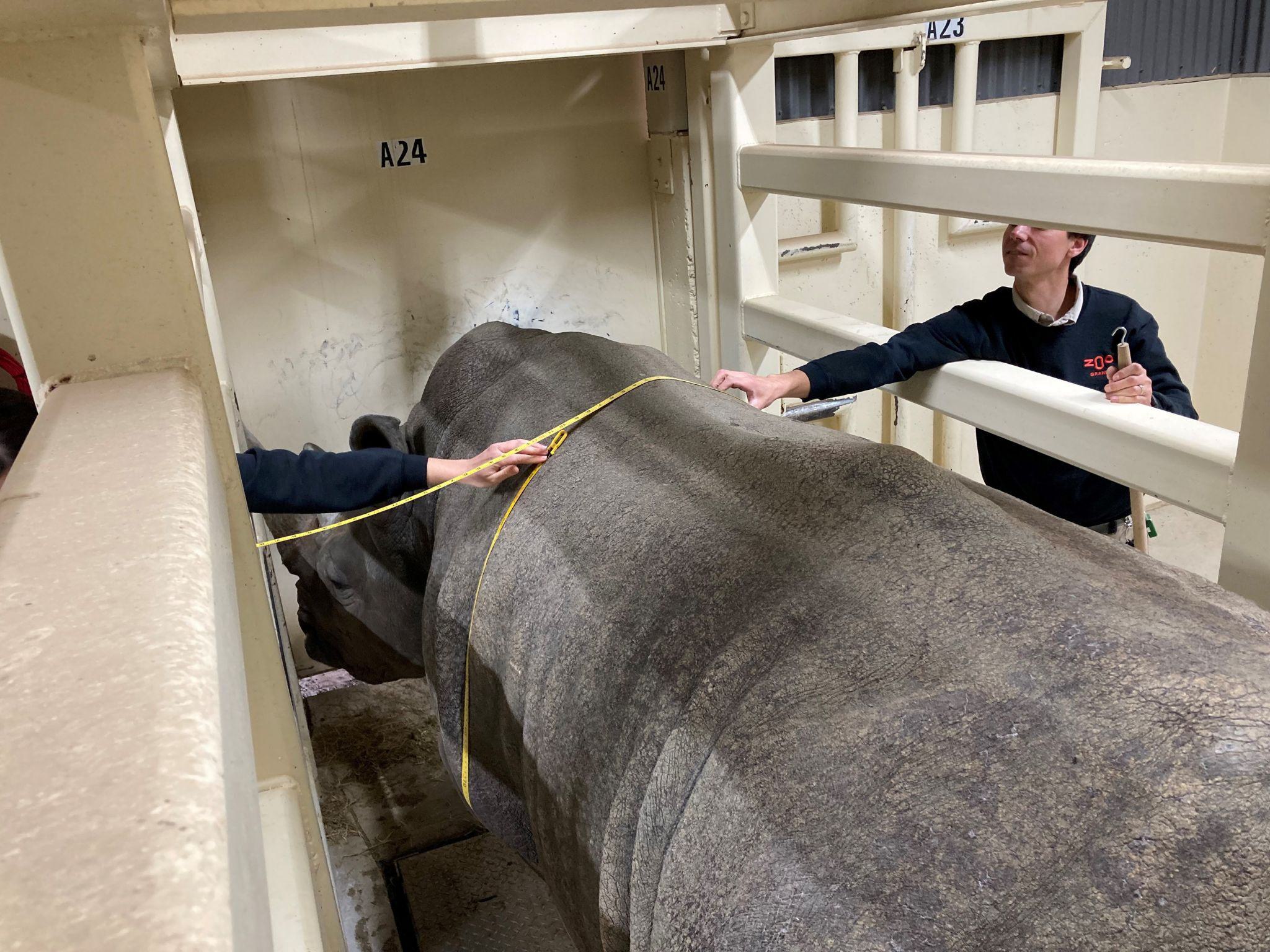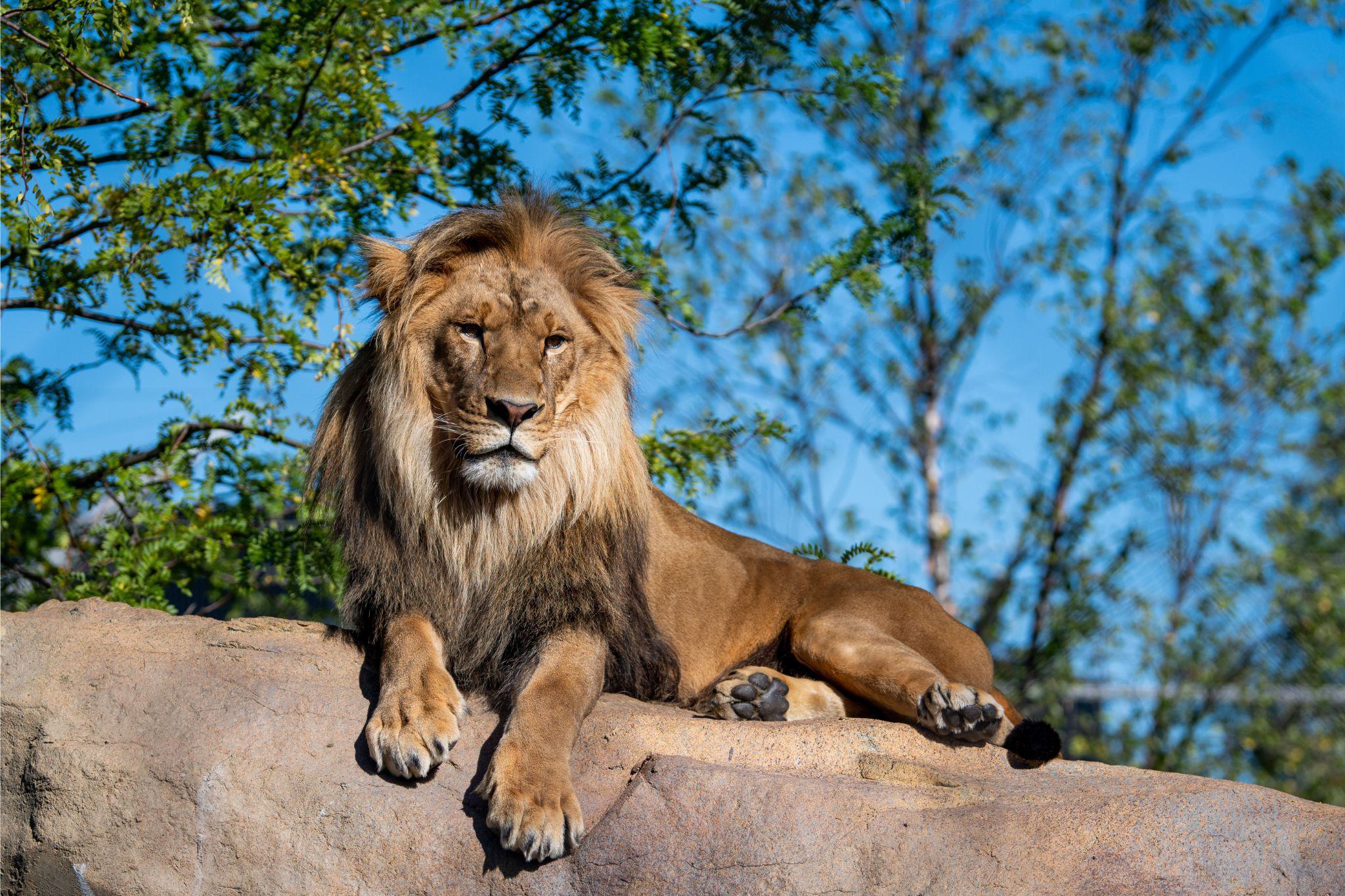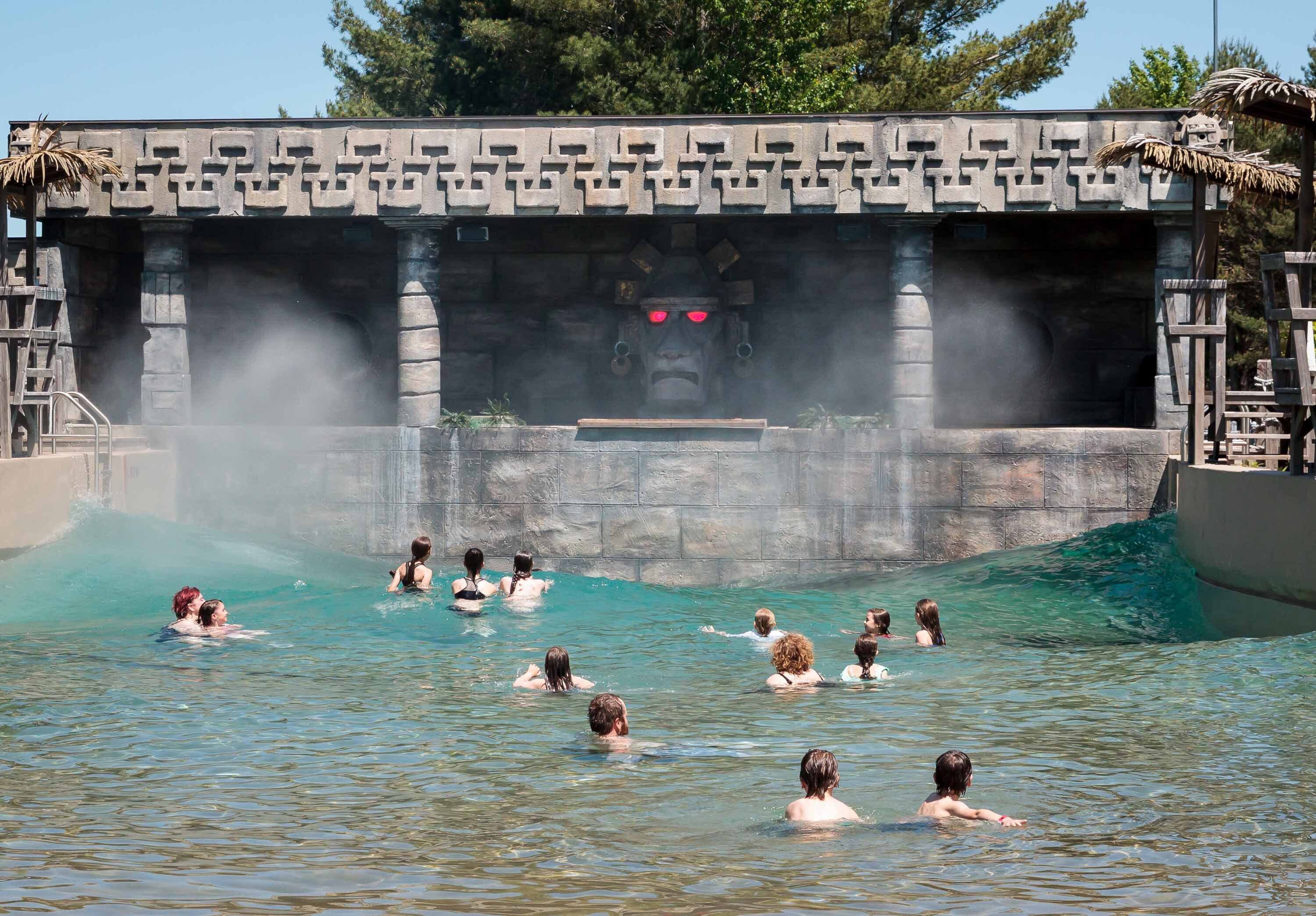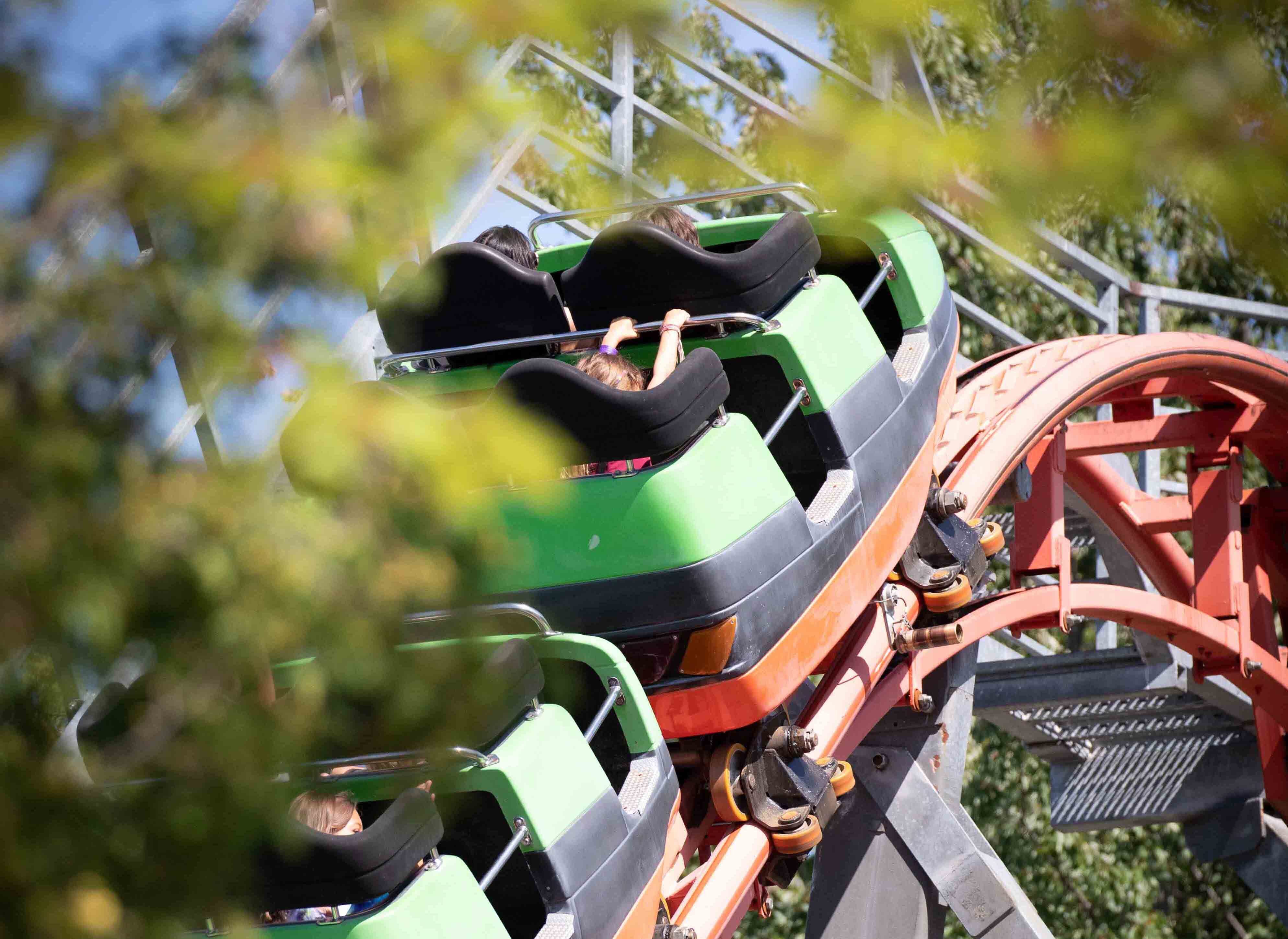A Research Project Focusing On Rhinoceroses
Our rhinoceroses K.C. and Shaboola are participating in a major North American research project gathering about forty zoological institutions and more than 100 pachyderms. The project is headed by the American Institute of Rhinoceroses Science (AIRS) and draws on a wide range of scientific expertise; It is definitely quite a big deal! The Zoo de Granby is very proud to collaborate and contribute to the advancement of science and increase the level of understanding of these large pachyderms.
Since last summer, our animal health technicians have been working to desensitize our pachyderms to the different manipulations the study will require. The objective is to gradually have the animals voluntarily collaborate with the required manipulations, and this without the use of anesthetics! Our technicians have already started gathering different data: a survey regarding our management of these animals and their daily care, as well as collecting faeces, blood and food samples.
K.C.’s desensitization was the subject of an additional content webcast on ICI Explora. ( video in french)
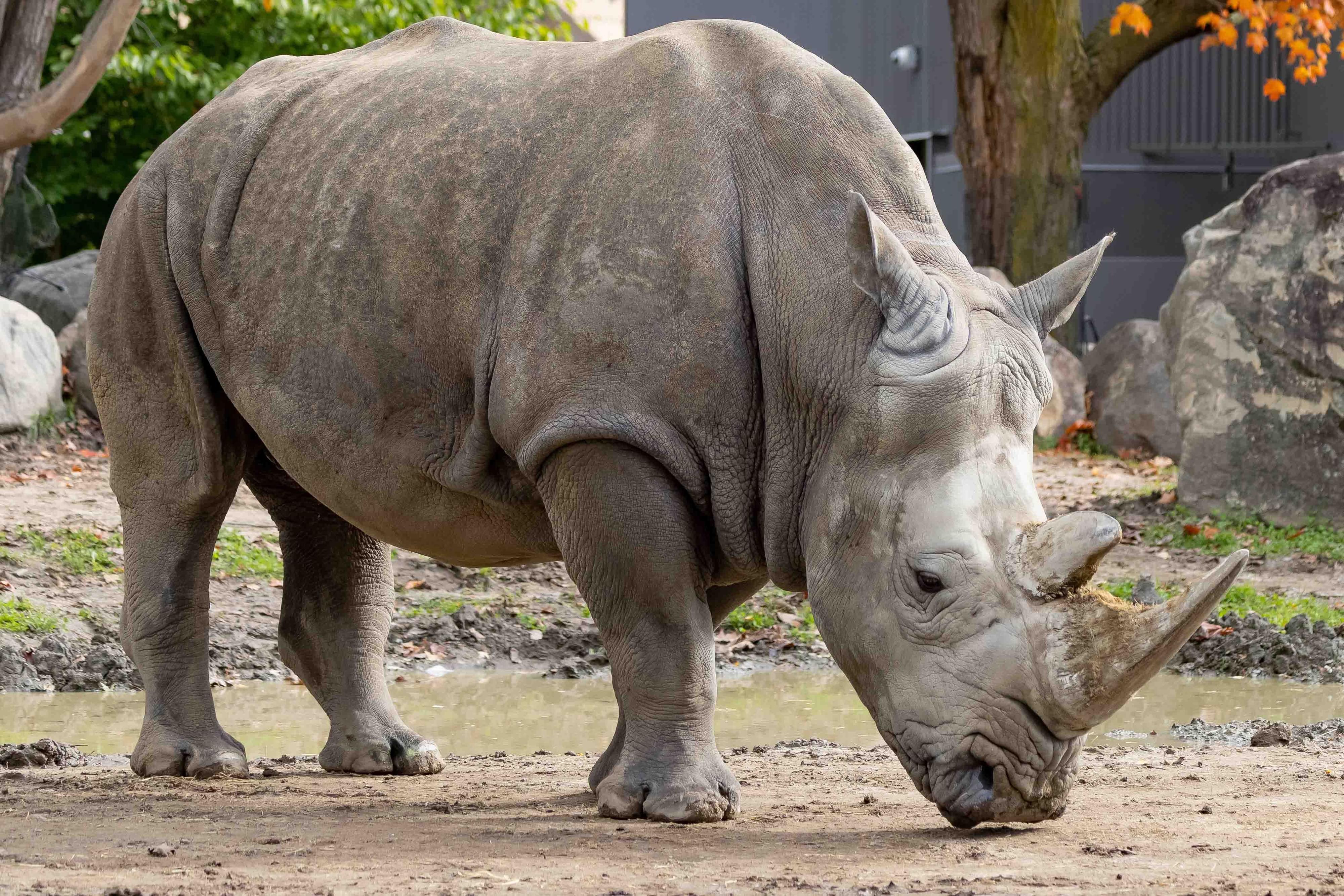
Rhinoceros desensitization
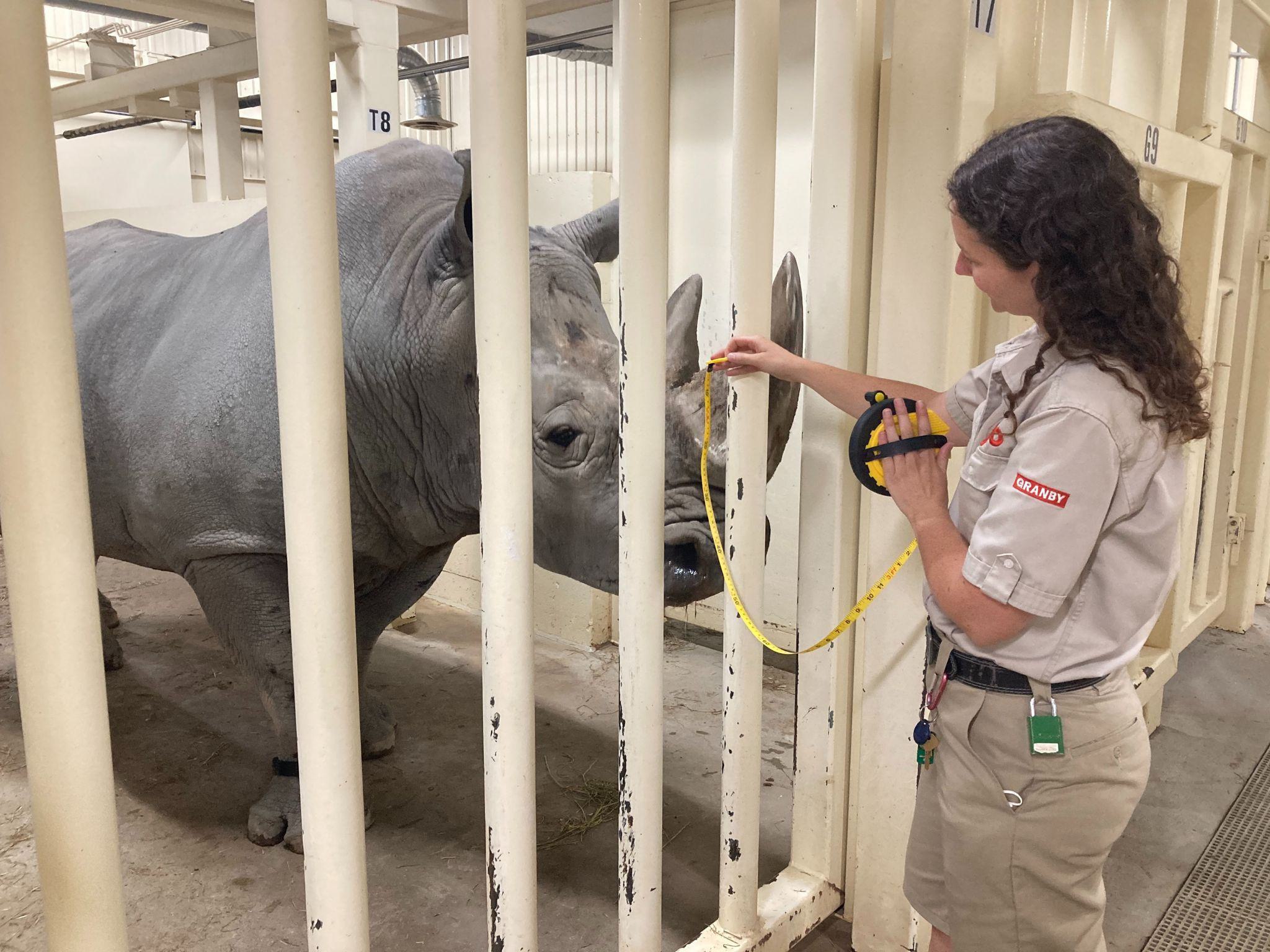
The research project
Earlier this year, between January 6 and January 10, a master’s student from George Mason University came to take morphometric measurements of our rhinos (length, height); She also collected data relating to the large mammals’ cardiac activity and measured the condition of their skin, in addition to installing a GPS bracelet and observing their daily activity level.
She’ll return in the summer of 2023 and collect the same data in order to compare the results obtained in the summer with those she collected during the winter.
Ultimately, the data gathered and pooled from the different institutions will increase our scientific knowledge and understanding of this species within a zoo setting in order to sustain conservation efforts presently being carried out within their natural habitat in the wild.
In parallel the study results will also help establish guidelines and new initiatives aimed to continuously improve the well-being of these big pachyderms residing in a zoo setting.
In the end, both rhinos in the wild and those living in zoos will greatly benefit from this vast scientific endeavour.
Here, we share with you one of our successful procedures at the Zoo: a blood test on a freely moving rhinoceros: see how the veterinary team proceeded! ( Video in french )
Blood test on our rhinoceros K.C. (video in french)
